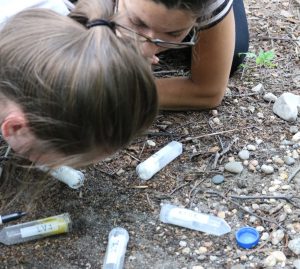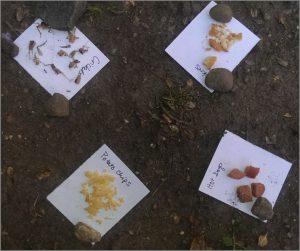Ants are omnivores, and their nutritional ecology can have strong influences on entire communities (Floren et al. 2002; Styrsky & Eubanks 2007). At the same time, urban ants commonly consume human foods. Ants clearly do not share a long co-evolutionary history with potato chips and hot dogs. What are the consequences for ants that switch from a diet comprised mostly of insect prey and nectar to one dominated by processed foods? Are there benefits to humans in urban ecosystems when ants consume their discarded food? What are the cascading consequences for arthropod communities that co-occur with ants that supplement their diets with anthropogenically-derived foods? These are the types of questions we are currently evaluating using a combination of observations and experimental manipulations.
Savage Lab Projects: Ant predation as a strong environmental filter in highly urbanized habitats; Assessments of urban food waste removal by ants as an ecosystem service in cities

